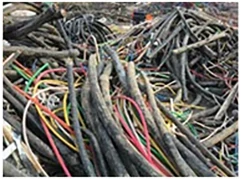

ធ្នូ . 06, 2024 18:21 Back to list
The Importance and Functionality of Non-Ferrous Metal Separators
Non-ferrous metal separators play a crucial role in the recycling and manufacturing industries by efficiently separating non-ferrous metals from other materials. Unlike ferrous metals, which contain iron, non-ferrous metals such as aluminum, copper, lead, and zinc are used in various applications due to their desirable properties like resistance to corrosion, lightweight, and electrical conductivity. The process of separating these metals from scrap and waste materials not only improves recycling rates but also enhances the quality of recycled metals, making separation technologies essential in today's industry.
How Non-Ferrous Metal Separators Work
Non-ferrous metal separators utilize advanced technologies to distinguish between different types of materials. These machines generally work on the principles of magnetic fields, eddy currents, and density differences. The most common types of non-ferrous metal separators include
1. Eddy Current Separators These devices are designed to separate non-ferrous metals from other materials such as plastics, wood, and ferrous metals. The eddy current separator generates a high-frequency magnetic field that induces eddy currents in conductive materials. As these currents flow through the non-ferrous metals, they generate a magnetic field in the opposite direction. As a result, the metals are expelled away from the non-metallic materials, allowing for effective separation.
2. Air Classifiers and Density Separators These types utilize air flow and density differences to separate materials. Heavier materials will remain towards the bottom while lighter materials can be blown away. For example, aluminum, being lighter than most other metals and materials, can be efficiently separated through this method.
3. Optical Sorters Using advanced camera and sensor technology, optical sorters identify different materials based on their color and composition. These systems can recognize non-ferrous metals very precisely, increasing sorting accuracy and efficiency.
Applications in Industries

The ability to effectively separate non-ferrous metals is vital across several industries. In the recycling sector, businesses can recover significant amounts of valuable materials from scrap, thereby reducing the need for new metal production which can be both energy-intensive and environmentally detrimental. The automotive and electronics industries also benefit greatly from non-ferrous metal separators; these sectors often deal with a wide range of materials and require efficient recycling processes to manage waste and recover valuable metals.
For instance, the automotive industry recycles aluminum from old cars to produce new vehicle parts. Similarly, copper from electronic waste is retrieved and reused, minimizing the environmental impact associated with mining for new copper.
Environmental Impact
The environmental benefits of using non-ferrous metal separators cannot be overstated. Recycling non-ferrous metals significantly reduces energy consumption compared to primary production. For example, recycling aluminum saves about 90% of the energy required to produce new aluminum from bauxite ore. Furthermore, it also minimizes greenhouse gas emissions, conserves natural resources, and reduces landfill waste, which benefits the environment at large.
The demand for non-ferrous metal separators is likely to grow as awareness around sustainability increases. With stricter regulations on waste management and a shift toward a circular economy, industries are encouraged to implement more effective recycling processes, thereby enhancing their environmental performance.
Conclusion
In conclusion, non-ferrous metal separators are indispensable tools in recycling and manufacturing sectors, contributing not only to efficient metal recovery but also to environmental conservation. As technology continues to advance, these systems are becoming increasingly sophisticated, providing greater accuracy and efficiency in sorting metals. By investing in and utilizing non-ferrous metal separators, industries can meet the dual goals of economic efficiency and environmental responsibility, paving the way for a more sustainable future. The importance of these machines will only grow as we move towards a circular economy, highlighting the need for effective recycling technologies in the modern industrial landscape.
Latest news
Troubleshooting Common Eddy Separator Problems
NewsJul.04,2025
The Role of Metal Recycling Plants in Circular Economy
NewsJul.04,2025
The Impact of Recycling Line Pickers on Waste Management Costs
NewsJul.04,2025
Safety Features Every Metal Shredder Should Have
NewsJul.04,2025
How Industrial Shredders Improve Waste Management Systems
NewsJul.04,2025
How Cable Granulators Contribute to Sustainable Recycling
NewsJul.04,2025